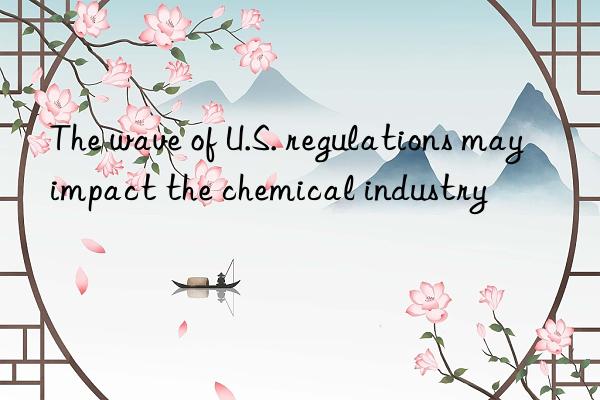
Recently, U.S. chemical companies and chemical distributors are struggling to adapt to an increasing number of regulations. At the recent ChemEdge conference and trade show in Texas, the National Association of Chemical Dealers (NACD) provided the latest legislative and regulatory information. NACD reminds U.S. chemical companies and distributors that before the 2024 U.S. election, the U.S. government is likely to introduce more regulations and regulations, which will have an impact on the operations of U.S. chemical companies.
NACD believes that since taking office in 2021, U.S. President Biden has actively promoted the introduction of new regulations, including promulgating a number of new regulations related to chemical production. The period between now and the presidential election in 2024 is the last opportunity for this administration to advance its policies. Based on this, NACD believes that in the next few months, the U.S. government will introduce more regulations and regulations.
NACD told U.S. chemical companies that climate change and environmental neutrality have become guiding issues for federal government agencies to formulate policies. This is of course beneficial to society and the environment, but it makes chemical construction and chemical operations more difficult, and the burden on chemical companies to comply with regulations is also heavier. Jennifer Gibson, senior vice president of regulatory affairs at NACD, said environmental neutrality has made it more difficult for companies to build and expand chemical manufacturing facilities in the United States.
Gibson noted that this is not the first time the U.S. government has raised the issue of environmental neutrality and climate change. However, the Biden administration is the first U.S. administration to give such prominence to environmental neutrality. In April 2023, President Biden signed an executive order declaring that environmental neutrality is the responsibility of all agencies under the President and should be included in their missions. Gibson said the focus on environmental neutrality has led to more inspections of chemical production facilities by federal agencies, so much so that companies have begun to worry about approvals. To this end, the American Chemical Manufacturers Association also announced that the organization will hold a meeting to discuss how to conduct design planning in the environmentally neutral era to more smoothly meet government permits.
NACD stated that in the near future, the U.S. government is likely to enact regulations restricting per- and polyfluoroalkyl substances (PFAS). Currently, firefighting foams containing PFAS have become the subject of class-action lawsuits across the United States. They have long been used to put out fires at Air Force bases and airports, but the foams pollute water resources and take a long time to break down, resulting in high environmental remediation costs. However, for chemical companies, new regulations may require chemical companies to purchase new fire-fighting foams, which may require them to refurbish their entire fire-fighting systems to adapt to new fire-fighting products. NACD also said the government should provide some form of assistance to help pay for such renovations.
In addition, Gibson also predicts that the U.S. Environmental Protection Agency (EPA) is proposing stricter risk management standards for methylene chloride. All consumer uses and most industrial uses of the chemical would be banned. Gibson said that for chemical companies, the pressure is not whether it is banned, but that the management standards for methylene chloride may be used as a template for other chemicals, and more new regulations will be quickly introduced before 2024.
NACD said the agency has focused on reauthorizing the nation's primary counterterrorism and chemical production site security program, the Chemical Facilities Counterterrorism Standards (CFATS). The previous CFATS expired in late July this year, and audits and on-site inspections have been stopped. Currently, chemical companies no longer have to vet employees through the Department of Homeland Security's personnel assurance tool, which compares employees to the U.S. government's registered terrorist list.
CFATS may appear to have nothing to do with chemical production, but NACD President and CEO Eric Bayer said the danger is that a bill to reauthorize CFATS could undermine the chemical industry with rider provisions and other additional policies that have nothing to do with chemical site safety. Businesses are in trouble. The consequences can increase costs for chemical companies without making any contribution to improving site safety. If the U.S. does not reauthorize CFATS, states can pass their own chemical site safety laws. The result will be a patchwork of state regulations that will complicate compliance for chemical companies.

 微信扫一扫打赏
微信扫一扫打赏

